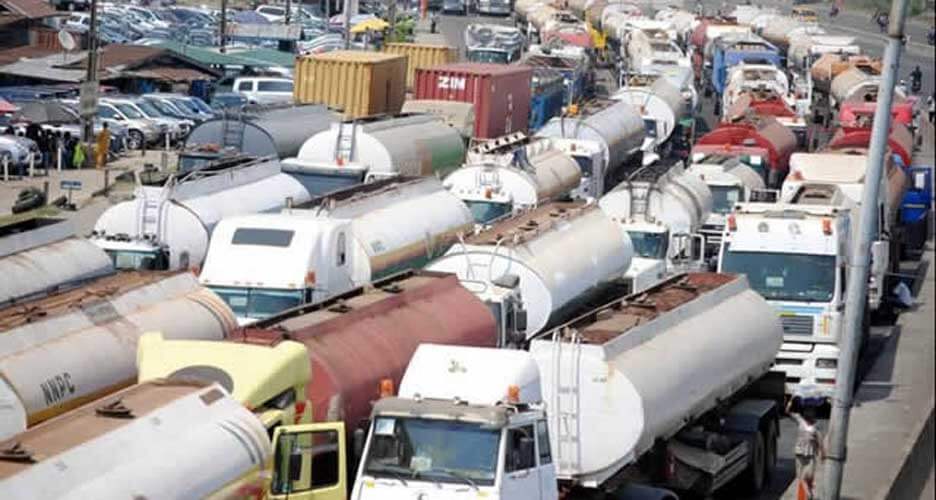
There are indications that the much-awaited electronics call-up system for trucks and tankers introduced by the Lagos State Government to prevent a repeat of Apapa port gridlock in the Lekki Port corridor, may have hit the rocks.
Our correspondent gathered that one week after the State Government gave assurances of the commencement of the electronic call-up system for trucks at the Lekki-Epe corridor, the initiative is yet to begin.
The system, which was scheduled to start on September 23, 2024, was planned to prevent a repeat of the Apapa port traffic gridlock as activities at the Dangote Refinery ramp up. However, as of last Thursday, there was no sign of the system’s implementation.
Some tanker drivers who spoke to Shipping Position Daily confirmed that the e-call-up system had not yet been implemented. Confirming the failure, Soliu Kareem, a truck driver in the area said, “there has been no sign of the e-call-up system, and traffic here remains chaotic.” The prolonged delay has raised fears that the corridor could soon face the kind of congestion that plagued the Apapa port for years before the introduction of a similar e-call-up system.
Findings by our correspondent revealed that the delay appears to be rooted in disagreements between the Lagos State Government and the Dangote Group.
Sources informed that while the government is keen to onboard all stakeholders operating in the Lekki Free Trade Zone onto the call-up system, the Dangote Group has expressed concerns over the lack of adequate truck parking facilities. The refinery, which began full operations recently has seen a surge in trucking activities, exacerbating the traffic situation without any system in place to manage the vehicular flow.
A representative from Dangote Group disclosed that they had initially planned to construct a 33-hectare truck park near the refinery to accommodate the expected volume of trucks coming into the refinery. However, the company claimed that it was dissuaded by the Lagos State Government, which promised to provide a state-run truck park.
At a meeting with stakeholders at the instance of the Lagos state government last week, Mr. Yinka Akande, who represented Dangote Group explained that the company had been ready to build the park, but decided to step back after assurances from the state government that a public-private partnership would deliver the necessary facilities. “We agreed to focus on the refinery and leave the logistics to the government, but now we’re stuck. The truck parks have not materialized, and we don’t want another Apapa situation here,” Akande lamented.
Akande further revealed that Dangote is ready to participate in the e-call-up system, but insists that the necessary infrastructure must first be in place. “We need the truck parks to manage the 2,700 to 2,800 trucks that will be moving in and out of the refinery daily at peak production. The parks that have been identified so far have a combined capacity of less than 2,000 trucks, with the largest able to hold only 300 trucks. That is far from sufficient,” he said.
Meanwhile, the Lagos State Commissioner for Transportation, Seun Osiyemi, had assured stakeholders that the e-call-up system was ready to commence on September 23, even as he assured that any emerging issues would be resolved as the system operates. “We understand there will be teething problems, but we need to start now, to prevent the corridor from becoming another Apapa,” Osiyemi stated. However, one week later, the system remains in limbo, and the traffic situation around the Dangote Refinery continues to worsen.
Efforts to reach the Special Assistant to the Governor on Transportation; Mr Sola Giwa, for further clarification on the delay were unsuccessful, as calls and text messages sent to him were not answered as of press time.
Meanwhile, the National Association of Road Transport Owners (NARTO) has raised concerns about the lack of clarity on the fees for the call-up service. The association’s president, Yusuf Lawal, stated that most truck owners have not been adequately informed about the costs associated with the system. “There has not been enough communication. We need to know what fees will be charged and how the system will operate. Many of our members are still in the dark,” Lawal said, calling for more awareness and sensitization efforts.
Local authorities in the Ibeju-Lekki area have also expressed concern over the increasing number of accidents involving trucks. The Chairman of Ibeju-Lekki Local Government, Mr Sesan Olowa, pointed to several recent incidents, including a case where a truck crashed into a hospital, resulting in fatalities. “The situation is getting out of hand. We have seen too many accidents involving these trucks, and the e-call-up system is urgently needed to control their movements,” Olowa stressed.
Olowa added that many of the truck drivers operating in the area are young and inexperienced, contributing to the high number of accidents. He called for better enforcement of traffic regulations and stressed the need for proper safety measures to protect residents of the area. “The people of Ibeju-Lekki are suffering because of this. The roads are dangerous, and the companies involved do not seem to care about the safety of the local population,” he said.















